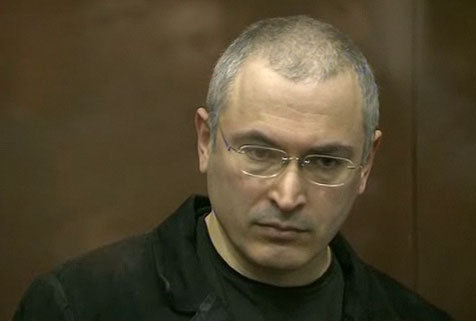MOSCOW, March 6 - RAPSI. Former YUKOS head Mikhail Khodorkovsky, who was sentenced to 13 years in jail for oil theft and money laundering, refused to comment on the president's order to the Prosecutor General's Office to examine lawfulness of his sentence, Khodorkovsky's press center reports on Tuesday.
"Mikhail Borisovich smiled for quite a while and then said there would be no comment on the matter. I told him that many people are interested in his opinion as this issue was so unexpected that it almost overshadowed the results of the presidential elections for some time. However, he preferred to refrain from making any comments," his lawyer Karinna Moskalenko was quoted as saying.
President Medvedev ordered the Prosecutor General's Office on Monday to examine the lawfulness of indictments against 32 people, including Khodorkovsky, former Menatep head Platon Lebedev and former head of the YUKOS security service Alexei Pichugin.
Medvedev also ordered to verify the legality of the refusal to register the People's Freedom Party.
Moskalenko said Khodorkovsky is determined not to plea for a pardon.
She added that her client's parole has nothing to do with the lawfulness of his indictment or the validity of his sentence.
In 2005, Mikhail Khodorkovsky and Platon Lebedev were sentenced to eight years in prison for fraud and tax evasion. In late 2010, a Moscow district court sentenced them to 14 years in prison for oil theft and money laundering. They were expected to be released in 2017, taking into account the time they had already served for their convictions from their first trial in 2005. However, on May 24, the Moscow City Court reduced their sentences by one year. They now may be released in 2016.
The YUKOS case has been one of the most high profile in Russia in recent years. In the early 2000s, the authorities accused the executives of YUKOS, then the country's largest oil company, of economic crimes. YUKOS then went bankrupt while its assets were transferred to Rosneft. Many in the West believe the case was politically driven, but Moscow denies the charges.



